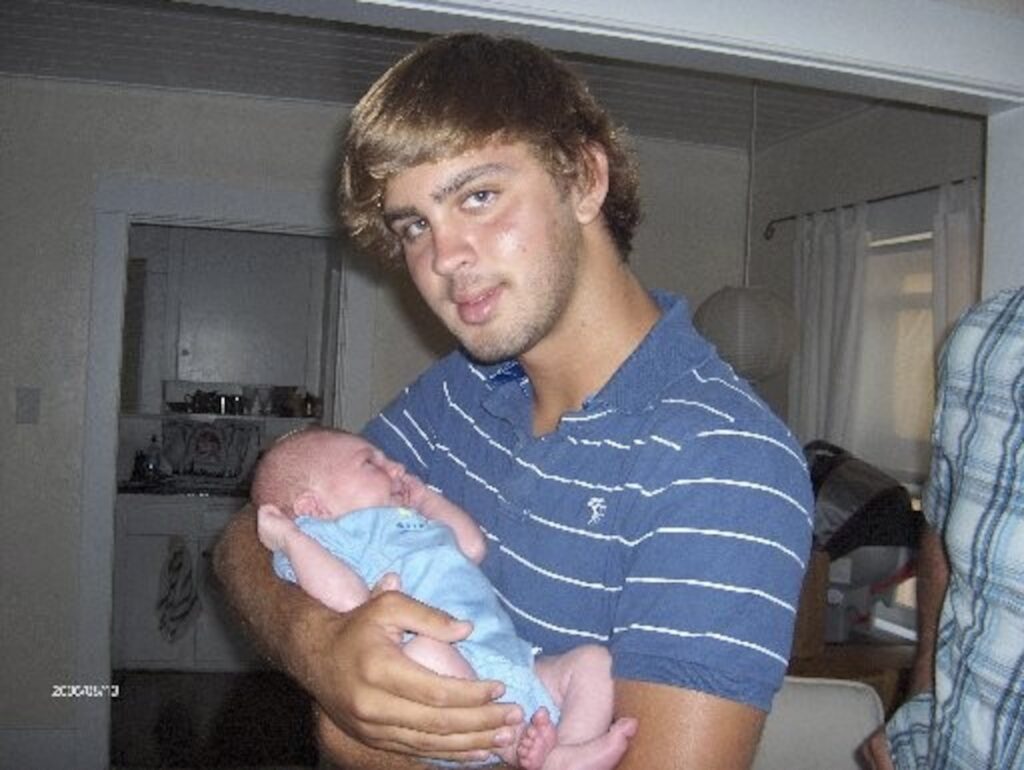Their son died more than a decade ago, the victim of a fraternity initiation incident at Rider University that drew national attention to the problem hazing on the nation’s campuses
After many years of failures in Congress, the first federal anti-hazing legislation was signed into law by President Joseph Biden earlier this week, increasing transparency and accountability on college campuses across the nation by providing parents and students with better information about hazing incidents and require the adoption of robust prevention policies.
“We’ve been pushing hard for this for a very long time,” said Julie and Gary DeVercelly Sr. in a joint statement, whose son, Gary DeVercelly Jr., died in 2007 in a fraternity hazing incident at Rider. The 18-year-old freshman from Long Beach consumed most of a bottle of vodka during a Phi Kappa Tau initiation ritual.
“No parent should have to bury their child, especially not for something preventable like a hazing death,” the family said.

Gary DeVercelly Jr., who died in a fraternity hazing incident at Rider University in 2007.PG
In 2009, Rider University and two of its employees agreed to settle a lawsuit brought by the family “for a significant amount of money’’ and changes to the university’s policies, including banning alcohol in dorms and on-campus fraternity and sorority houses.
One Rider student was sentenced to three years probation after pleading guilty to hazing, while two other fraternity brothers were allowed into pretrial intervention, a program for first-time offenders that can lead to their criminal records being expunged.
Since their son’s death, the DeVercelly family said “the number of identified hazing tragedies and deaths has escalated at an alarming rate.”
A 2008 national study found that 55% of college students involved in clubs, teams, and organizations experience hazing.
More recently, two former college students who led a Penn State University fraternity where a pledging member from Hunterdon County died during a 2017 hazing incident pleaded guilty to hazing charges this year.
Timothy Piazza, who grew up in Readington, died after being forced to swallow heavy amounts of alcohol for close to an hour and a half before falling down the stairs, officials said, after which his unconscious body was placed on a couch. He died at a hospital two days later.
The bill signed by Biden, H.R. 5646, known as the Stop Campus Hazing Act, requires institutions of higher education to disclose hazing incidents that were reported to campus security authorities or local police agencies in annual security reports.
It also mandates the setting of policies to prevent hazing, which must include information on hazing awareness and hazing prevention.
The bi-partisan bill was sponsored in the House by Representatives Lucy McBath, D-GA, and Jeff Duncan, R-SC, which cleared the lower chamber in September.
“The impacts of hazing across our country are heartbreaking and unacceptable. I know the pain of losing a child, and we must do everything we can so that families know their kids are being kept safe when they go off to college,” said McBath.
The measure was co-sponsored by six members of the New Jersey delegation, including Reps. Donald Norcross, D-1st Dist., Andy Kim, D-3rd Dist., Joseh Gottheimer, D-5th Dist., Mikie Sherrill, D-11th Dist., Tom Kean, R-7th Dist., and Chris Smith, R-4th Dist.
The Senate passed its companion bill earlier this month in legislation sponsored by Sen. Amy Klobuchar, D-MN, and Sen. Bill Cassidy, R-LA. New Jersey Democratic Sen. Cory Booker was a co-sponsor.
“When parents send their kids away to college, they expect they will get a good education and make new friends,’’ said Klobuchar. “They don’t expect them to be harassed and hazed. Unfortunately, hazing is a dangerous and at times deadly reality, and we must work to end it.”
Our journalism needs your support. Please subscribe today to NJ.com.
Peter Genovese may be reached at pgenovese@njadvancemedia.com. Follow him on Twitter @petegenovese and on Instagram at @peteknowsjersey.

